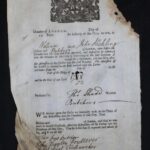
Date of Birth
1515
Place of Birth
Greens Norton, Northamptonshire, England
Towns / Cities Moved Into
-
Known Occupation
-
Religion
-
Spouse
Death Information
Year of death
August 5, 1606
Place of death
-
Cause of death
-
Burial location
St Bartholomew Churchyard Greens Norton, South Northamptonshire Borough,
Northamptonshire, England
Obituary

Parents

John Hickling

Christian Cawnfield
Marital Status


Married Lady Frances Marie Goodwin
1548
Children



Narrative / Story
William Hickling’s life, spanning from 1515 to 1606, was a tapestry of personal milestones and historical events that shaped England during the Tudor era. Born in Greens Norton, Northamptonshire, England, William was the son of John Hickling and Christian Cawnfield. His early years were likely influenced by the rural environment of Northamptonshire, a county known for its rolling hills and rich agricultural land.
In 1548, William married Lady Frances Marie Goodwin, daughter of John Goodwin of Winchinton. This union was not just a personal milestone but also a social one, as marriages during this time were often means of consolidating wealth and social status. Together, they had three children: Christian, William Goodwin, and Jane Hickling. Tragically, both William Goodwin and Jane passed away in infancy, a common occurrence in an era when child mortality rates were high.
William’s life as a landowner and esquire in Greens Norton would have been marked by the responsibilities of managing estates and possibly participating in local governance. The absence of detailed records about his occupation leaves room for speculation, but it’s likely that his life was intertwined with the agricultural rhythms and social hierarchies of the time.
The Hickling family lived through a period of significant historical events. The establishment of the Royal Exchange in 1571 and the first English colony in America in 1585 were indicative of England’s expanding global influence and commercial ambitions. The execution of Mary, Queen of Scots, in 1587, a decision signed off by Elizabeth I, was a pivotal moment in English history, reflecting the turbulent religious and political landscape of the time.
William Hickling’s life was also shaped by the broader socio-economic context of Tudor England. As a member of the gentry, he would have been somewhat insulated from the hardships faced by the lower classes, but not entirely immune to the economic and social challenges of the time. The Act of Uniformity in 1558 and the introduction of the Book of Common Prayer in 1549 were part of the religious upheaval that characterized the era, impacting everyone in England, including the Hicklings.
William passed away on August 5, 1606, and was laid to rest in St Bartholomew Churchyard in Greens Norton. His wife, Frances, had preceded him in death in 1603. Their daughter, Christian, married Thomas Elmes and continued the family lineage. The Hicklings’ lives, interwoven with both personal joys and sorrows and the grand tapestry of English history, offer a fascinating glimpse into the life of a family during one of the most dynamic periods in England’s past.
